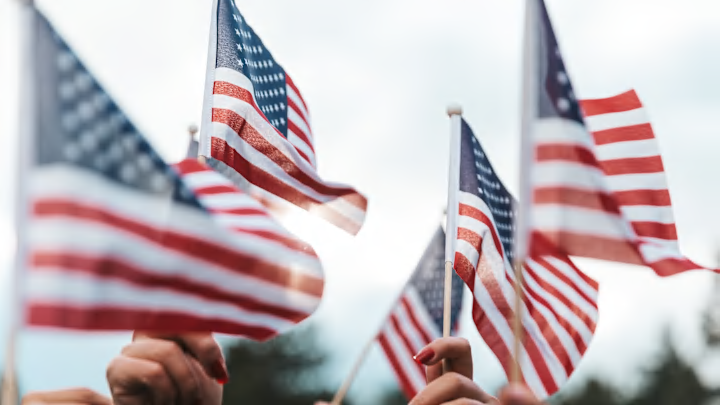The reason we celebrate Veterans Day on November 11 dates back to 1918, when an armistice between the Allies and Germany was signed that essentially ended World War I. The first Armistice Day was celebrated the following November 11.
World War I was billed as the war to end all wars, but of course it didn’t. By the 1950s, with so many American veterans of World War II and the conflict in Korea, some thought the term Armistice Day was outdated.
How Armistice Day Became Veterans Day
Alvin King, a shoe repairman from Emporia, Kansas, probably isn’t in many history books, but he deserves at least a paragraph. In the early 1950s, he thought Armistice Day was too limiting. He had lost family in World War II, and thought all American veterans of all wars should be honored on November 11. So he formed a committee and, in 1953, the city of Emporia celebrated Veterans Day.

Ed Rees, Emporia’s congressman, loved the idea and took it to Washington. President Eisenhower—another Kansan—liked King’s idea, too. In 1954, Eisenhower formally changed November 11 to Veterans Day and invited some of Emporia’s residents to be there when he signed the bill. King was one of those invited, but there was one problem: he didn’t own a nice suit. His veteran friends chipped in and bought him a proper suit and paid his way from Kansas to the White House.
In 2003, Congress passed a resolution declaring Emporia the founding city of Veterans Day.
You May Also Like ...
- 11 Things to Remember This Veterans Day
- What’s the Difference Between Memorial Day and Veterans Day?
- 11 Ways to Support Vietnam War Veterans
Add Mental Floss as a preferred news source!
Why Do We Celebrate Both Veterans Day and Memorial Day?
There are two holidays in the U.S. dedicated to those who have served: Veterans Day, honored annually on November 11 every year, and Memorial Day, which falls on the last Monday in May. And though both days have some overlap, there are some distinct differences between the two.

Veterans Day recognizes all veterans who served in the U.S. military, both dead and alive. It’s a day to thank your loved ones—and also complete strangers!—who have served.
Memorial Day, on the other hand, is specifically meant to honor U.S. military members who died while serving the country. The holiday arose following the Civil War and was originally known as Decoration Day, as people would place flowers on the graves of deceased soldiers. As such, events honoring the holiday tend to have a more somber atmosphere.
This story was a originally published in 2018; it has been updated for 2025.
